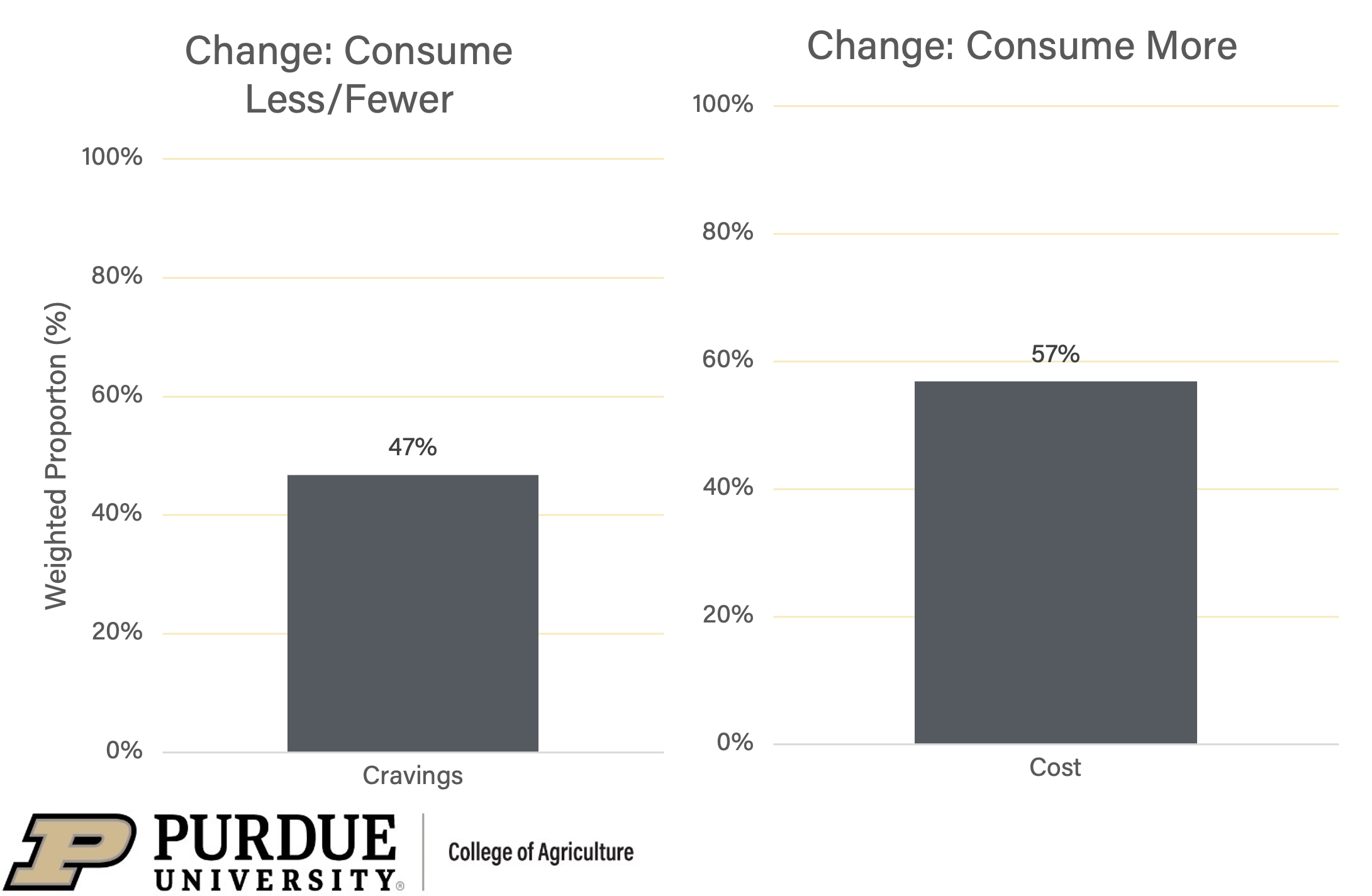The new year is often a time for reflection and setting new goals. Many of us start the year with plans to make changes to our lives in big ways, like looking for a new job, or small ways, like wanting to eat more fruit. Unfortunately, despite our best intentions, New Year’s resolutions are notoriously hard to keep.
Our Center conducts a monthly consumer survey aimed at tracking trends in food demand, security, sustainability, behaviors, values and satisfaction over time. We also include new questions each month related to timely current events and research goals. In our January Consumer Food Insights (CFI) survey we asked consumers about their New Year’s resolutions as they pertain to food and nutrition, to try to better understand their intentions and motivations, as well as the challenges they face in setting and reaching New Year’s goals. The survey found that 25% of all respondents indicated that they plan to make some sort of resolution related to food and nutrition, up six percentage points from last year.
The biggest motivation behind these food and nutrition-related resolutions is the desire for improved health. Consumers told us they are making changes to food consumption to improve their health (72%) and lose weight (48%).
We also asked consumers about specific changes they planned to make to their diets. More than 70% of consumers in the survey said that they plan to increase consumption of fruits and vegetables, and almost half plan to increase consumption of plant-based protein or fish. Many consumers plan to reduce consumption of candy (76%), desserts (64%) and salty snacks (55%). Consumers also tell us they plan to drink more water and less sugary soft drinks and alcohol.
Later in the survey, we asked consumers what challenges they expect to face in following through with their resolutions. Among consumers who are trying to reduce or eliminate certain items from their diets, the leading obstacle to success was cravings. Among those who are trying to increase consumption of certain items like fruits and vegetables, the leading obstacle to success is cost.
It is not surprising to see cost top the list of anticipated barriers to eating healthier given the common consumer belief that eating healthy is more expensive than eating unhealthy. However, the literature on the cost of a healthy diet suggests this belief may not always be true. When looking at the cost per calorie, unhealthy foods cost less because they are often calorie-dense. But the cost of a healthy diet tends to be lower when measured by cost per typical portion or cost per edible weight. (In our ongoing research, CFDAS is measuring the cost of a healthy diet in the U.S. Stay tuned for developments this year.)
Are you working on changing your food and nutrition habits for 2024? We want to hear from you. For questions and/or inquiries related to this topic, you can contact us through this form or email chubbell@purdue.edu.
Footnote:
- In CFDAS’s Consumer Food Insights survey discussed in this blog post, we assume “healthy” and/or a “healthy diet” to be in accordance with the CDC’s Dietary Guidelines for Americans.


![Figure 1. Share of Consumers Who Have Food or Nutrition-related New Year's Resolutions [n=1,239], Jan. 2024 & Figure 2. Share of Consumers who Plan to Change their](https://ag.purdue.edu/cfdas/wp-content/uploads/2024/02/Figure1V2_Feb-COT.png)


